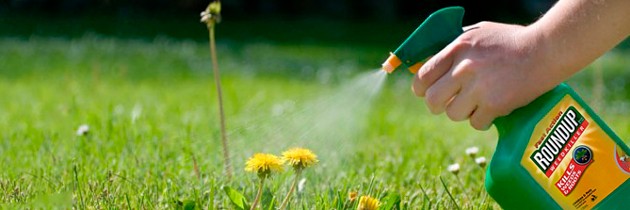The Health and Environment Alliance (HEAL) is calling on Europe’s most influential cancer societies to urge governments to put an immediate ban on glyphosate, a chemical used as a herbicide.
In a letter sent on World Cancer Day (4 February) from HEAL’s President, Dr Peter van den Hazel, he reminds leading national cancer groups that a ban on glyphosate represents a significant opportunity in cancer prevention.
Glyphosate was classified as a “probable carcinogen” on the basis of currently available data by the World Health’s Organization’s (WHO) International Agency for Research on Cancer (IARC) in March 2015.
Dr Peter van den Hazel says: “Defining glyphosate as a ‘probable carcinogen’ means that scientists have been able to show that glyphosate causes cancer in mammals. Policy makers in Europe and at national level should listen to the expertise of the leading WHO scientists and now urgently reduce exposure to this herbicide. We must assume that if exposure can produce cancer in animals, it can do the same in people.”
Glyphosate is in widespread use in Europe. It is the active ingredient in most herbicides sold for use in the agricultural sector. It is also sold to consumers as a weed killer for private garden use and to public authorities to keep school grounds, hospitals grounds, public parks, pavements and railway lines clear of unwanted vegetation.
Surveys monitoring the body fluids of Europeans suggest exposure to glyphosate is increasing. Germany’s federal environment agency (UBA) recently published the results of its regular testing of glyphosate in the urine of German residents. It showed that whereas only 10 percent of 400 urine samples taken in the survey in 2001 were contaminated with glyphosate, the percentage had increased to just under 60 percent in 2013 and to 40 percent in 2015. Biomonitoring by Friends of the Earth Europe (FoEE) in 18 European countries in 2013 showed levels varied widely.
Existing national initiatives
Some national cancer societies in Europe have already taken the action that HEAL is promoting. Last year, the French cancer league (la Ligue contre le cancer with a membership of 700,000) issued a statement calling on the French government to ban glyphosate and four other pesticides included in the IARC classification as soon as possible. A few months later, they launched a petition to prevent renewal of the licence for glyphosate by the European Union authorities.
It seems their voice was heard as a few months after the first call, the French Environment Minister required French garden centres to stop sales of glyphosate to individuals unless a qualified vendor provides advice.
In the Netherlands, private sales of herbicides containing glyphosate were banned in 2014.
German state consumer protection ministries have called for a ban, and some retailers in Germany have voluntarily taken glyphosate products off their shelves.
The Danish Working Environment Authority, which is under the Danish Ministry of Employment, has followed the WHO/IARC decision by declaring glyphosate as a carcinogen. This will imply changes in application practices, including recommendations to use alternative, less toxic chemicals.
Genon Jensen, HEAL’s Executive Director says that she believes national cancer societies could be highly effective in bringing about a policy change that would reduce cancer risk.
“We are asking influential cancer organisations to encourage their national authorities to ban this probable carcinogen. Now is the time to do it because the EU is reviewing whether to renew the European licence on glyphosate. So alongside taking national action at home, we are asking national governments to oppose the renewal of glyphosate’s authorisation at the EU level. Cancer leaders within the countries are well-placed to be heard and, in this way, can contribute to avoiding unnecessary cancer diagnoses from this exposure in the future.”
HEAL is a signatory to a petition to the EU Commission, the Food Safety and Health Commissioner Vytenis Andriukaitis, and responsible Ministers of the Member States calling on them not to renew the licence for glyphosate.
